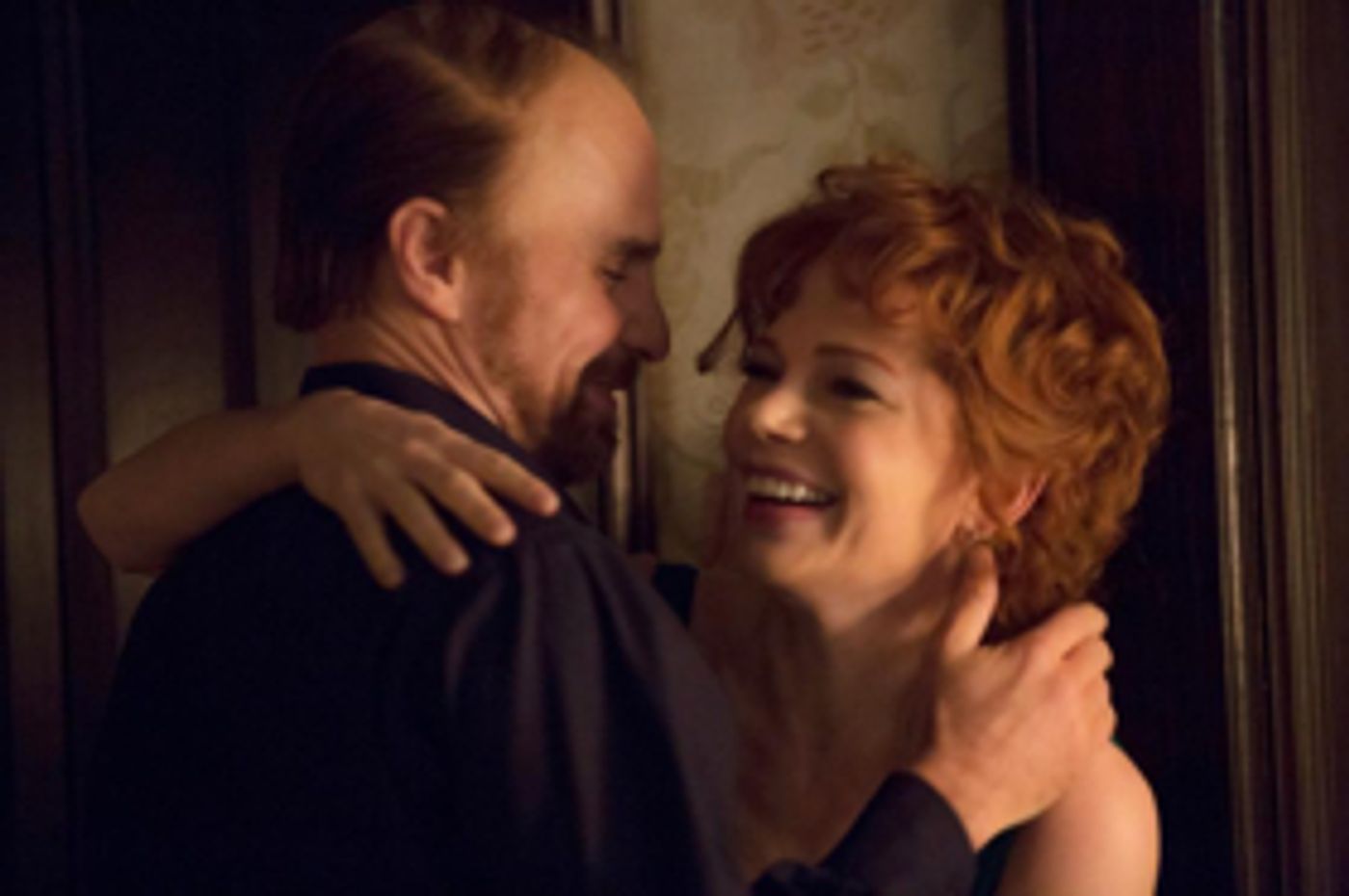Review Roundup: FOSSE/VERDON- Critics Weigh In On The FX Theatre Drama

Spanning five decades, Fosse/Verdon explores the singular romantic and creative partnership between Bob Fosse (Sam Rockwell) and Gwen Verdon (Michelle Williams). He is a visionary filmmaker and one of the theater's most influential choreographers and directors. She is the greatest Broadway dancer of all time. Only Bob can create the groundbreaking musicals that allow Gwen to showcase her greatness. Only Gwen can realize the unique vision in Bob's head. Together, they will change the face of American entertainment - at a perilous cost.
Featuring show-stopping choreography, including original pieces as well as some of the most iconic works of Bob and Gwen's careers, Fosse/Verdon will tell the story of these two brilliant, complicated individuals - the love they shared, the art they created, and the price they paid in the pursuit of greatness.
Find out what critics think of the limited series ahead of its April 9th premiere on FX!
Alexis Soloski, The New York Times:
Of course, examining can look a lot like glamorizing, and if you saw the first teaser, which played during the Oscars, you'll have spotted the legs, the breasts, the zippers plummeting down, down, down. But if the show celebrates Fosse, it's the kind of party where the cake falls and most of the balloons pop. It would be a mistake to strip Fosse's world of its appeal, its libidinal oomph. And another mistake to ignore how that appeal could sour.
While smart writing and handsome production values will make "Fosse/Verdon" unmissable for musical theatre enthusiasts, the first quarter of the series leans towards being a familiar artist/muse love story. Hopefully, the rest of the series will expand on its depiction of Gwen Verdon and present her as a great artist who, being a woman, found herself out of demand as she grew older.
Daniel Fienberg, The Hollywood Reporter:
Fosse/Verdon feels like a more restrictive thing. If you're familiar with Fosse's choreography - obligatory "jazz hands!" jokes need not apply - and the who's who of '60s and '70s Broadway and can sing along to the entirety of Sweet Charity and Cabaret and Damn Yankees, there's a lot to enjoy here, starting with Rockwell and Williams. BEYOND that, however, the early installments of Fosse/Verdon lean way too heavily on familiar genre tropes relating to self-destructive geniuses and the long-suffering women who love them. The love story of Bob Fosse and Gwen Verdon should open up as something bigger than just another well-cast prestige TV antihero saga. So far, it hasn't.
Daniel D'Addario, Variety:
That becomes the central problem of the show: Who, precisely, is it for? Admirers of Fosse's work will have the work to return to. (And the work, indeed, remains: One of "Fosse/Verdon's" early miscalculations is depicting the filming of "Cabaret" and thus forcing a comparison between the very game Kelli Barrett and the character she's playing - Liza Minnelli, who delivered one of the most memorably electric performances ever put to film.) And the uninitiated will see in Fosse and Verdon two characters moving through very familiar choreography - young love followed by painful recrimination, a step forward, then two back.
Liz Shannon Miller, IndieWire:
Ultimately, this is a show about the making of entertainment, and the producers do a brilliant job highlighting the individual struggles the process entails, as well as how the people who devote their lives to it are affected. The first episode of "Fosse/Verdon" is framed around the choreographer's death, but his passion for life is what drives the drama otherwise. Verdon's own attention to specifics, and Williams' inspired performance, honors the best and worst of what moves artists to create.
Michael Phillips, Chicago Tribune:
Rockwell is solid and persuasive, laboring under a medium-good approximation of Fosse's nagging comb-over. The real Fosse wasn't quite so languid or relaxed; he was more wired and itchy, at least in my memories. (Time will tell how much of Fosse's omnivorous sexuality comes through.) Williams is fantastic, though, and it's shaping up to be her series.
Kayla Cobb, Decider:
Rockwell and Williams walk the line between madly in love and maddeningly on the edge splendidly. Rockwell has quite literally flung himself into the role of Bob Fosse, portraying this manic depressive creator in a rush of great ideas and near constant breakdowns. He's as unnerving as he is addicting to watch. Yet it's Williams' performance as Gwen Verdon that steals the show. Her wide eyes in the middle of this tornado stand as the series' emotional center. It's impossible not to immediately empathize with this artist who's incapable of removing herself from the complicated art she loves.
Lena Wilson, The Playlist:
It's a compelling character sketch, and a refreshingly unflattering one for a male protagonist that could have easily been afforded anti-hero glory. In the era of #MeToo, it's impossible to see Fosse, who comes off as a kind of '70s Broadway Harvey Weinstein, as anything other than lecherous. It's no surprise to see Sam Rockwell, king of the dirtbag oeuvre, inhabit Fosse's skin so naturally. However, it's Michelle Williams who shines brightest with her extraordinarily winning performance as Gwen Verdon.
Photo Credit: Craig Blankenhorn/FX
Reader Reviews
Videos


